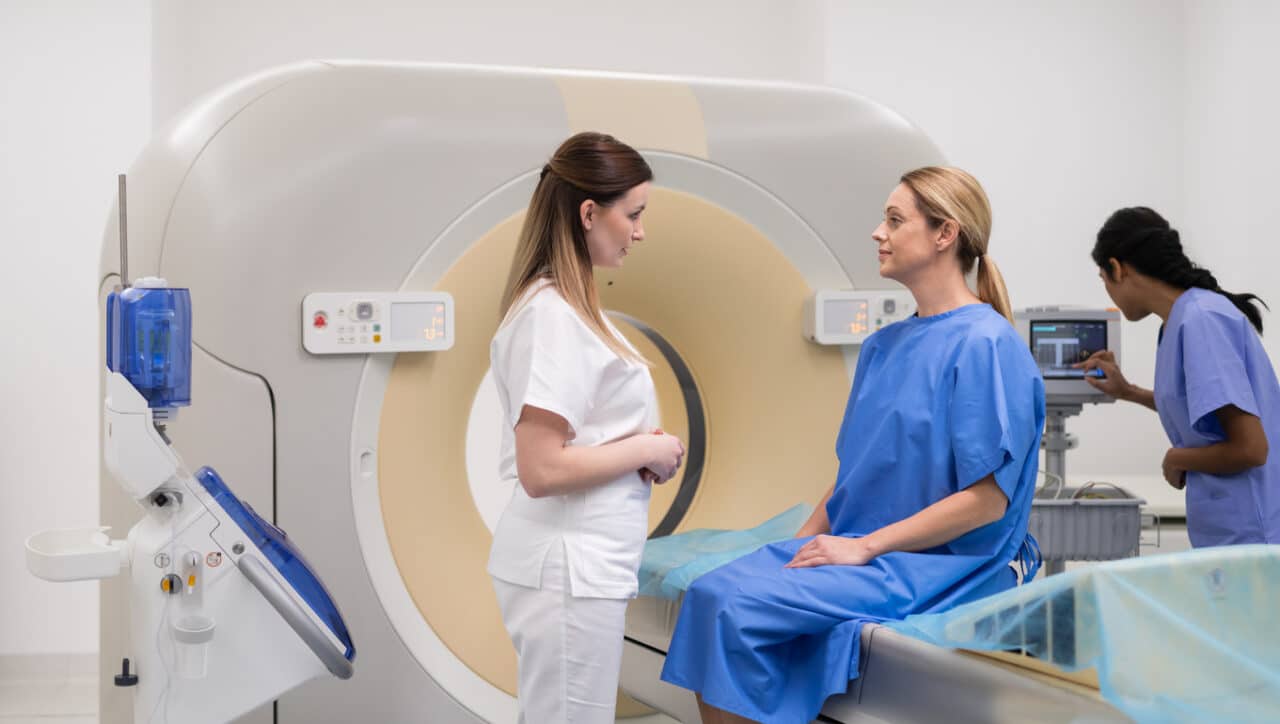A CT (computed tomography) scan is an imaging test that uses a series of X-rays to create detailed images of the bones and soft tissues. CT scans help providers detect internal injuries and diseases that cannot be diagnosed through physical examination alone.
If your provider has recommended a CT scan to help diagnose an ear, nose or throat condition, you will likely have a few questions about the process. Let’s look at the procedure for a CT scan to help you prepare and destress.
What Makes a CT Scan Special?

If you have ever had a broken bone, you are likely familiar with the process of getting an X-ray. An X-ray creates a flat, two-dimensional image of your body. CT scans are a little different in that they take dozens to hundreds of images as the cameras revolve around your body. By taking pictures around the body, your provider is able to get a clearer picture of your organs, bones, muscles and fat than regular X-rays can provide.
What To Expect During a Scan
Most CT scans will take fewer than 10 to 15 minutes and follow similar steps, including:
- You will normally lie on your back on a flat, narrow table during the test. Depending on the specific reason you’re getting the scan, your provider may inject you with a contrast dye through an IV. The dye will likely make you feel warm or cause a metallic taste in your mouth.
- The table will move slowly into the scanner.
- The scanner will begin to take pictures, you may be asked to hold your breath for a short period as it does so.
- When the scan is finished, the table will move back out of the scanner.
- You will likely get your scan results within 24 to 48 hours.
CT Scans and Claustrophobia
CT scans require that the patient enter an enclosed or semi-enclosed machine. Because of the tight space, some patients may feel anxiety or fear. Anxiety or fear in response to small or confined spaces is known as claustrophobia. Approximately 12.5% of the population has claustrophobia. Fear or anxiety can make it difficult to stay completely still during a CT scan. Because it is essential to remain still to obtain a clear picture, your provider may recommend some relaxation techniques and tips, including:
- Soothing music. If allowed, ask your technician to play soothing music during your scan to help calm your nerves.
- Yoga or meditation. If you have an upcoming exam, consider taking a Heartspace Yoga & Healing Arts class to help you relax before the scan.
To learn more about CT scans, contact Albany ENT & Allergy Services today to make an appointment with one of our specialists.